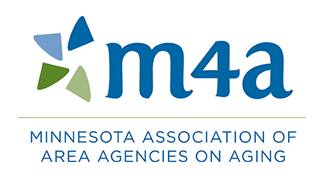Sharing a Meal to Reduce Isolation
The City of St. Peter’s immigrant and refugee population is growing. In the elementary schools, 20% of the students are children of color. Services for children and families are common but services for elder immigrants and refugees are lacking. Of particular concern are East African elders, primarily from Somalia, living with and supported by their families in the St. Peter area. As these families settle in and become accustomed to the community, their elders become socially isolated, disengaged from the community and experience loneliness and depression.
Abdi Noor Matan, Executive Director of the Horn of Africa Aid and Rehabilitation Action Network (HAARAN) reached out to MNRAAA program development staff in the fall of 2016 to see how we could help. The goal of HAARAN is to advocate for and improve the life standards of persons with disabilities, elders and vulnerable children through promoting and assisting with accessing education, healthcare and rehabilitation. Mr. Matan has established a HAARAN office in St. Peter which provides a unique opportunity to reach and engage the elders.
After several meetings and much discussion about how to reduce isolation among the elders, it was determined that sharing a meal is the best way to bring people together, no matter what their culture of origin. With this in mind, MNRAAA approached the City of St. Peter with the concept of developing a congregate meal program that is culturally appropriate for East African elders and incorporates a time for socialization and educational activities.
A workgroup has been established to move the concept forward.
Workgroup members represent:
- City of St. Peter
- St. Peter Senior Center
- Community elders
- Nicollet County Public Health & Statewide Health Improvement
- Partnership (SHIP)
- River’s Edge Hospital & Clinic
- Minnesota Valley Action Council
- Gustavus Adolphus College
- St. Peter Food Co-op
- Lutheran Social Service of MN
- HAARAN
- MNRAAA
The ground work has been laid and workgroup members are hopeful that beginning in August elders will be able to come together once or twice a month to share a meal, engage in lively conversation and participate in stimulating activities that foster inclusiveness for all cultures.
Stay tuned for updates as the concept becomes a reality!






